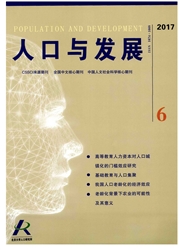

 中文摘要:
中文摘要:
中国特有的户籍制度,使人口城市化呈不完全、非正规特征。以上海为例,主要从微观角度,考察中国城市化过程中农民工的市民化特征,评价其目前的市民化水平,分析影响其市民化转变的主要因素,从一个侧面探讨和揭示中国不完全、非正规城市化发展的独特性、阶段性与规律性。目前中国城市农民工总体上已达到54%的市民化水平,尤其是其社会关系、心理认同等非物质维度的市民化都已达到接近60%的较高水平。即使受户籍制度以及以此为基础的二元社会体制的屏障,中国城市化过程中农民工的市民化仍然取得较大进展。
 英文摘要:
英文摘要:
Urbanization in China has been characterised as uncompleted and informal by the household register system. Takes Shanghai as a case study, this paper investigates from the micro angles the characters and levels of peasant workers' citizenization during China' s urbanization and analyzes the principal factors which influence the citizenization. It discusses and reveals the uniqueness, stagger and rules of the uncompleted and informal urbanization in China. The paper shows that the level of the peasant workers' citizenization has reached 54% and especially some perspectives of citizenization including social connection and psychological identification have been over 60%, which means that the citizenization of the peasant workers has made progress although hampered by the household register system.
 同期刊论文项目
同期刊论文项目
 同项目期刊论文
同项目期刊论文
 期刊信息
期刊信息
